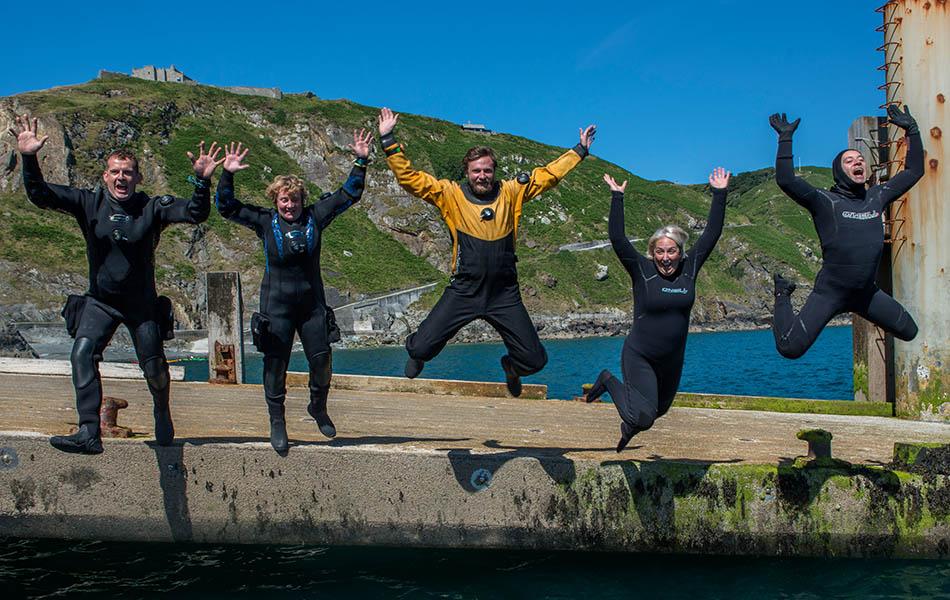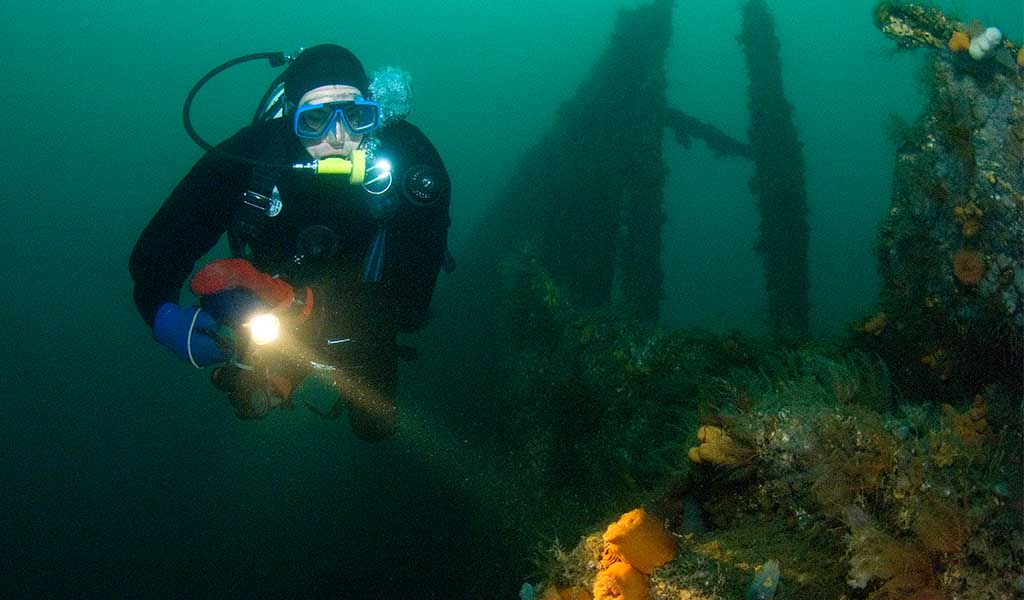
Do you have a burning ambition to dive somewhere special? Sarah Conner, SCUBA columnist and assistant producer on Blue Planet II, has some essential tips.
Let’s go on an expedition! No really, don’t stop reading this because you think that sort of diving isn’t for you or you’re not ready to go on a diving expedition. Waiting means you might never go, so get ready to leave your comfort zone and experience another side to our amazing underwater hobby.
An expedition is a journey with a purpose
First, don’t be put off by the word expedition – the modern definition of an expedition is a journey with a purpose – it really is just another way of saying ‘diving with a purpose’.
Let’s face it, this dive trip is unlikely to be in your local quarry, but it doesn’t have to be in the most remote part of the ocean or under the most challenging conditions either. It can be fun to explore a new location or further develop your knowledge of a known dive site.
You don’t need to be an ex-military, professional adventurer like Andy Torbet either, to help plan or join an expedition (although I will admit they are useful to have on your team). What you will need is time, enthusiasm and the support of diving friends with a variety of skills.
In my first diving theory lesson, we were asked why we wanted to learn to dive, I said I wanted to dive under ice and people sniggered. I assume that was because I hadn’t even dived in the pool yet and was a petite, young woman. But that didn’t put me off. As soon as I was suitably experienced I organised my own trip to Arctic Norway to learn to ice dive and explore the frozen lakes.
My diving experiences have given me the most exciting opportunities in my career working in science and natural history television.
As a BSAC Regional Coach, and in TV, I have been lucky enough to organise dive expedition throughout Scotland, Norway, Greenland, Botswana, Indonesia and recently in many other remote and interesting parts of the oceans for Blue Planet II. If I can do it, as a very ordinary diver, who like us all just loves being in the water, so can you.
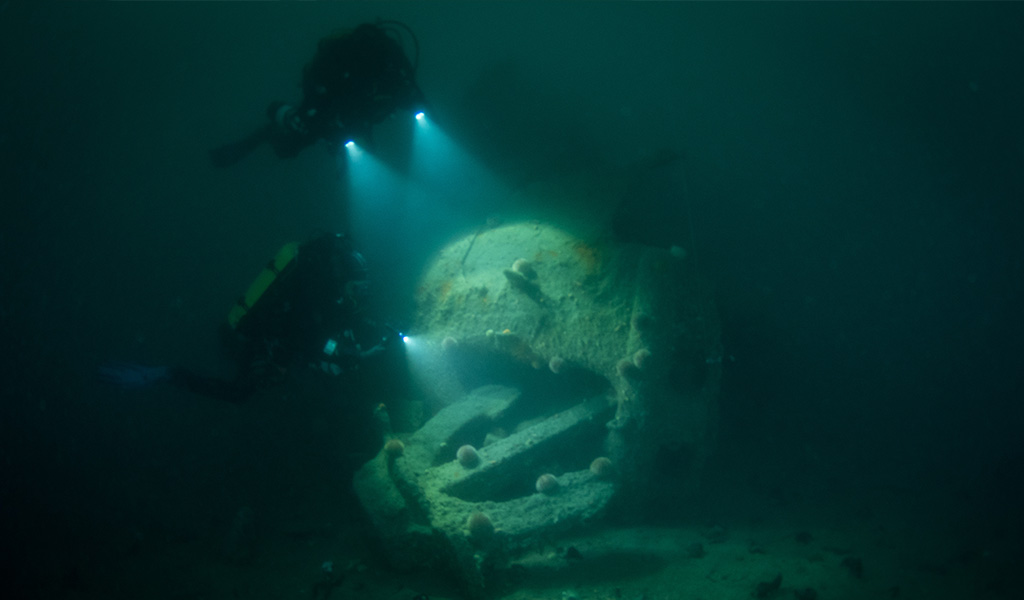
The Purpose of your expedition
The first thing to work out is the reason for the trip. If you don’t already have an idea then browse the internet for inspiring sites or read through your old copies of SCUBA magazine and ponder.
Ask yourself what do you want to do on the expedition? Do you want to learn new skills or complete a task? Where do you want to do it? The purpose might be something you are already interested in, a way to learn more about a location, or even just a good way to justify going somewhere amazing.
Start a list of ideas that you feel most enthusiastic about, then write a few notes by each one. Useful information to help shorten the list includes:
-
Is it season or weather dependant?
-
Roughly how long would it take to do the task?
-
Would it be an expensive expedition?
-
How feasible is it?
Sailing to a remote point in the Pacific Ocean to dive to its very depths while surveying for new marine life, for example, would score one out of 10 (unless you have a lot of resources) and a 10 out of 10 for expense, but surveying the bed of a remote Scottish sea loch, only accessible by small boat would get maybe an eight or nine for feasibility and a four on costs if you plan to camp.
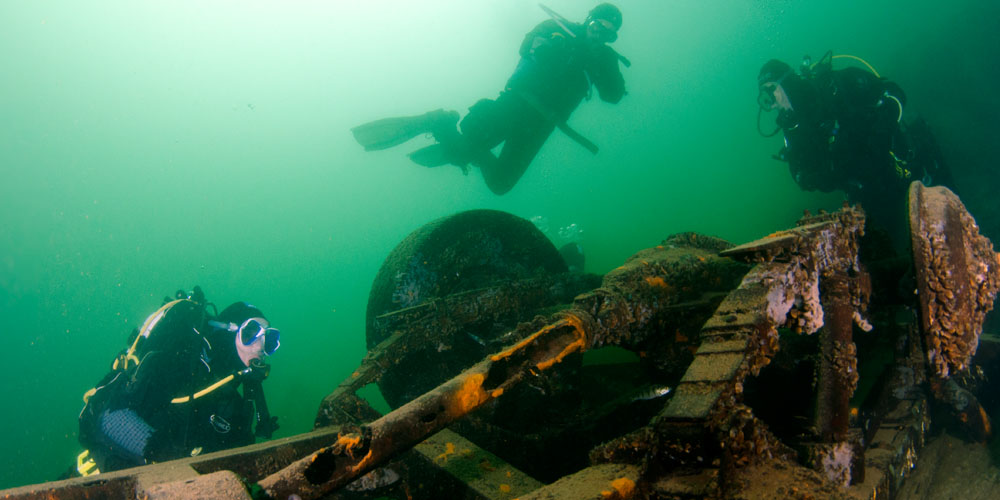
The Expedition Leader
Any expedition needs a leader, but this doesn’t mean the Expedition Leader makes all the decisions. An Expedition Leader will, however, take overall responsibility, on location, for the safety and overall smooth running of the trip, so must be involved in, or oversee, the planning.
Beyond having the relevant qualifications and experience, a diving expedition leader needs to have certain qualities. His or her role will be to ensure everyone gets the most out of the trip and to resolve any problems while helping keep the group safe and happy.
BSAC rules require a club expedition, sanctioned by your Diving Officer, to have a BSAC Advanced Diver or above as its leader if you are visiting an unknown site, as they have been trained in the skills needed. If you choose to visit a site known to the club, a Dive Leader can be in charge.
The Expedition Team
Initially, the team can be just big enough to start the planning and preparation. It can grow once you know how many divers you can accommodate. If your aim is to complete a task, then the divers may need to acquire the necessary skills before going on the trip. If your purpose is to teach skills then you only need the required number of instructors and everyone else can be any diver suitable to start learning the new skill.
Having people with good first aid skills, then a mix of other useful non-diving skills is vital, but people don’t already have to have these skills, they can be learned, practised and improved before leaving for the expedition.
Planning and preparation for your expedition
A good starting point for working out kit and logistic needs is to visualise the first few days of the expedition, from arrival at the location to getting set up and starting the task.
Think about what you might need and start to make a list:
- How will you get to the site?
- Where will you sleep?
- How will you get your gas fills?
- Where will you find food and fuel (for boat or compressor)?
- If you plan to self cater and be self-sufficient in food and fuel, will you be able to stock and store enough for the duration or will you need to do a restocking run?
- Or could the restock be done for you by a local? Can you buy things locally or will you need to get provisions in a bigger town on the way?
If you can explore a location first, to see what facilities are available and meet local people who might be able to help, it makes planning much easier. When this isn’t possible, the internet is a good starting point. You can find local divers, dive centres or even others who have visited the area before to ask for their thoughts on logistics. Finding a local compressor to use, for example, could be a great bonus.
If your task is to survey marine life or a historical site, then look around to find experts from universities or organisations that specialise in that topic. They could have useful websites, talks or scientific papers online and many will have contact details so you can email them with any questions.
The Royal Geographic Society is also a good point of contact to help with not only finding an expert but also to support any planning. The BSAC website, expedition team and The Expedition Manual are also good resources.
Other things to look into in advance include:
- Permits to access sites
- Permits to dive and undertake the task in the location
- Are any visas needed?
Look into these early on, as they could affect when you go, the duration of the trip, and they will also have an effect on your budget. If you are going abroad, check what vaccinations are required, especially if it’s a remote location as some might need to be started far in advance of your travel dates.
The Expedition Budget
Once you know what your plan is, work out the time you need to achieve everything before going, then work out a budget. It may be the budget that dictates the length of the preparation stage, so you have the time to save up for the trip.
Look into the cost of buying or hiring any specialist equipment early on. You might need kit to do your task or you might decide to buy or hire a portable compressor or a booster pump for gas fills in remoter locations.
For overseas expeditions, you may need to ship kit out in advance, so look at shipping, customs and any special packing that might be needed: for example, portable compressors may need to be cleaned of all oil and fuel before being professionally packed. Don’t forget insurance for the divers and the trip.
Financial help
Research what grants are available:
- If you're planning on a BSAC inter-branch expedition this could benefit from an endorsement by the BSAC Regional Expeditionary Scheme ‘REDS’.
- Or look into BSAC’s charity the British Sub-Aqua Jubilee Trust as they also award grants to diving projects and expeditions.
- The Royal Geographic Society lists a number of grants that can be applied for if your expedition fulfils certain criteria, and the internet will likely provide some other options to be explored.
As you continue with your planning and preparations keep updating the budget to ensure the trip stays viable.
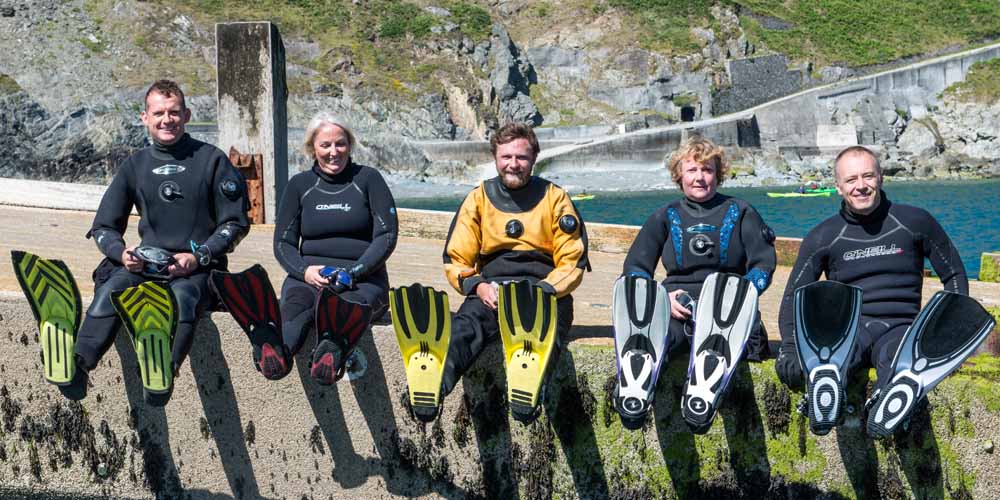
Risk assessments for expeditions
It’s worth starting a risk assessment and writing a medical evacuation plan early, as it could reveal that you need more kit than you had originally planned for.
Talk to local people to help fill in gaps, this could include:
- Whether the destination has emergency responses logistics from ambulance services on land to coast guard boats or helicopters at sea
- What the response times are
- Where the local hyperbaric chambers are
- How many people the chambers can take at one time
- Relevant phones numbers
- The quality of all hospitals is equal
- If all these facilities run all year round
Before any trip, I call all the relevant phone numbers (hospitals, chambers and coast guard) to check a few things including:
- if the phone number works
- when we will be in the area and when we plan to dive
- whether they have anyone who can speak English and understand my needs
- whether they expect payment upfront or are happy to go through insurance claims
- and are they really open 24 hours a day and do they have any planned holidays
Risk assessment and medical evacuation plan tips
I was in a remote part of Indonesia a couple of years ago for work, when I was asked to go straight onto another new shoot, that wasn’t far from our current location.
Although I could have used my same risk assessment and medical evacuation plan, I still called the nearest chamber and air ambulance to let them know our plans had changed and we’d be in the area diving for another few weeks. I discovered that the plane was being serviced during that period without any cover planned and the chamber staff were all going on holiday at the same time so the chamber was going to be closed.
Luckily I had my list of back up facilities. There was another chamber that was going to be open, but it was further away, there was also another air ambulance that would be willing to cover the area we’d be diving, it was also further away and wouldn’t fly at night.
We were still able to shoot but we needed to alter our plans to dive more conservatively and we needed to get extra emergency oxygen to use in case we had to wait through the night to evacuate a casualty. We also had to plan another option to get to a hospital in case of a major bleed. These contacts came from building good relations with locals months in advance of the trip.
Enjoy your diving expedition
Above all, remember diving is our hobby and it’s supposed to be enjoyable.
A well-run diving expedition should be a lot of fun, so if at any time it’s not, stop, think and change something to make it fun again.
So, go and do some research, then book your time off work and tell everyone you are going. It’s much harder to back out of it then and your adventure is waiting.
Already a scuba diver and want to get involved?
Join a BSAC club or join as a Direct member and get involved in an expedition. Let's get started...




